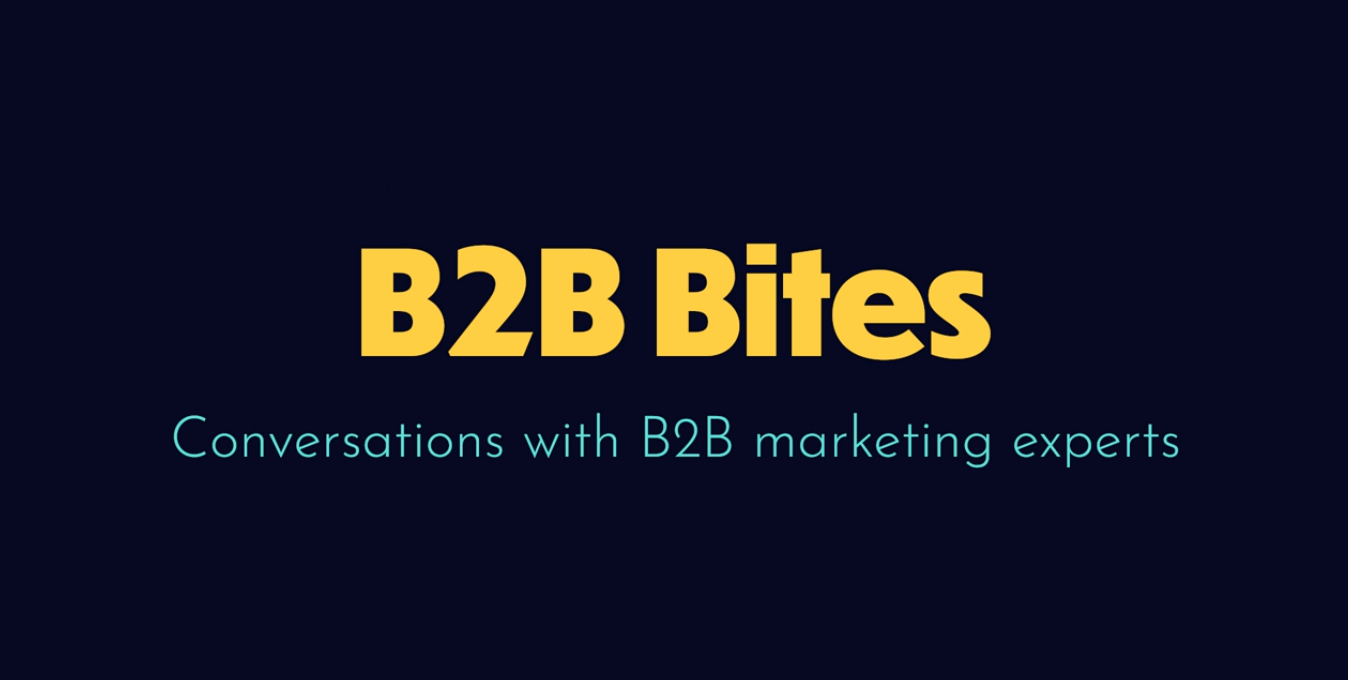Why are you reading this?
Because you want to make your B2B marketing strategy better? Of course.
Because you want to learn valuable content marketing tactics? Sure.
But why?
What exactly are you trying to do?
When you create content, any type of content, it’s absolutely essential that you are 100% clear and focussed on your goals and motivations for doing so. And by that, we don’t mean you appreciate that marketing is important, or you understand that content marketing is a very effective tool.
It means knowing why you’re writing this exact blog post or you’re going to make this particular podcast.
Don’t just say, “To grow the business” or “To increase sales” or “Increase our presence”. These are vague. To know if you’re content’s working, you need specific, precise goals.
A simple formula to get you started is this. Every time you put out a new piece of content – or even just a tweet – you should be asking yourself:
What do I want my audience to think, feel and do next?
Getting this right takes sensitivity. It takes skill.
There are times when what you want your audience to feel and what you want them to do take a bit of thinking to reconcile.
If you want your audience to feel warm and fuzzy but you then want them to immediately buy your no-nonsense business-related product, there’s a fair chance you’ll send their cynicism radars into overdrive. Your goals must be consistent and appropriate.
That doesn’t mean you have to stick rigidly to the “serious messaging” path. It just means that you have to have a very good idea of each step your audience will take, from interacting with your content to reaching your final goal - whether that’s buying your stuff, scheduling a meeting or requesting a quote. You can’t try to rush them there too quickly.
Want to see how that works in practice?
A great B2B marketing strategy example we came across was Sungard’s “Holiday Resiliency” campaign.
Just before Christmas, the company released a string of funny, quirky videos. These dramatised light-hearted domestic disasters that crop up when families go home for Christmas and depicted a well-prepared IT professional troubleshooting each of them.
Ultimately, Sungard wanted businesses to purchase their IT insurance. But instead of shoving people toward the finish line, they devised a strategy based on very effective content marketing tactics.
At the end of the video, viewers weren’t directed to buy from Sungard. It would be out of kilter with the video, and realistically, who is thinking about business insurance in the run up to Christmas? Instead, they (gently) reminded people how important is to be prepared and then, at the end of the video, offered them a free whitepaper on common risks and solutions.
Sungard’s content marketing strategy was broken into identifiable chunks, each with their own goal.
First, by putting out something genuinely funny and shareable, they tapped into the holiday mood, instead of fighting against it. In fact, the clickthrough rate was around 3 times the average.
They wanted people to think, “Hey, this is witty,” and to feel amused and good-humoured. As for the “doing” bit? Viewers were asked to enter their email in order to download the whitepaper. Turns out it’s easy enough to be persuasive when you’ve just put someone in a good mood and you’re offering something for free, because Sungard bagged 3,000 leads in just 3 days, with 87.4% of viewers downloading the whitepaper.
That’s 3,000 leads in their pocket when they stepped things up with a harder sell come January, when everyone was back in a business frame of mind.
“Why?” is a question that can be tricky to answer. It’s easy enough to say what we’re making, when we’re doing it, and how. It’s comforting to pull together a spreadsheet and say to ourselves, “Okay, we’re ready to go!” It’s much harder to pin down exactly what we’re hoping to get out of it.
But “Why?” is the most important question of all. Without “Why?” the rest of our carefully laid plans will fall apart.
Once you know the answer to “Why?” – and only then – will you have the beginnings of a genuine content marketing strategy. And only then will you get results.
For more great content marketing tips and industry secrets, download The B2B Content Marketing Masterclass.









